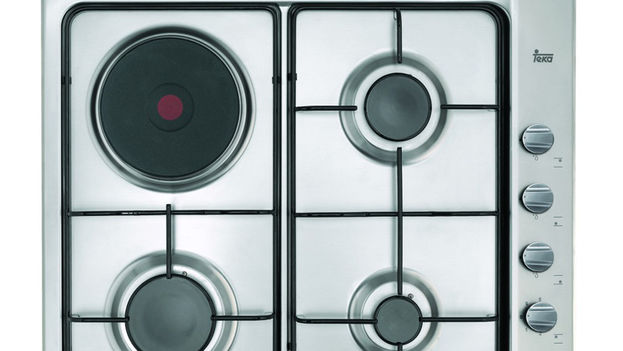
![]() 14ymedio, Havana, 24 October 2017 – Cuba’s General Customs Office of the Republic (AGR) issued a press release Monday reminding about the rules in force regarding non-commercial imports of stoves that “use electrical resistance for their operation.”
14ymedio, Havana, 24 October 2017 – Cuba’s General Customs Office of the Republic (AGR) issued a press release Monday reminding about the rules in force regarding non-commercial imports of stoves that “use electrical resistance for their operation.”
Air conditioners, washing machines and televisions are among the appliances most imported to Cuba by domestic travelers. Stoves are also among the products that arrive by air or in the so-called “unaccompanied loads” through maritime transport.
“Non-commercial imports of electric stoves and cooktops will only be allowed with a maximum consumption of 1,500 watts,” says the announcement.
In addition, it notes that “power consumption for microwave ovens should not exceed 2,000 watts.”
Customs emphasizes that gas stoves “that also include electric burners for cooking… are not permitted.” Those that use gas only can still be imported.
Many choose to bring in domestic appliances from abroad because of the high prices of stores that sell in Cuban convertible pesos (CUC), the shortages in the state-owned retail network, and the poor quality of what is available.
Most of these objects enter the country through the ‘mules’ who have a visa to visit countries in the area such as Panama, Mexico and the United States.
Many Cubans who have received Spanish nationality and a European Union passport through Spain’s Historical Memory Act have joined the lucrative business of so-called “non-commercial imports, a large number of which end up on the black market.
The price of a gas stove can range between 800 and 1,000 CUC depending on their performance, as can be verified in the classified ads that flood the internet. Those known as “combined” units, with both gas and electric burners, exceed 500 CUC.
The business of importing from abroad to sell in the national black market is lucrative despite the strict customs provisions that took affect in Cuba in mid-2014.
According to these rules, a resident in the country can only bring in one commercial import per year and pay the customs fees in national currency, while for future imports the fees will be paid in convertible pesos, according to the tariff established for each product.
Frequently, customs must issue warnings about products that arrive in the country in large quantities and the import of which is either not allowed or regulated. This is the case with drones, some wireless data transmission devices, satellite dishes and satellite GPS devices.
Recently, the AGR published a note on electric mopeds, known in Cuba as motorinas. The agency warned that there had been an increase in attempts to introduce “vehicles with characteristics that are not in line” with those regulated in the law.
In May of this year Customs issued another note on the prohibition of importing drones into the country. The AGR “suggests and thanks the passengers traveling to the country to refrain from importing this type of device as part of their accompanied, unaccompanied or as baggage,” the text said
